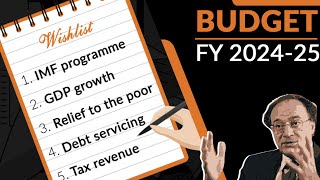EDITORIAL: This government may have taken its sweet time learning the ropes, but to give credit where it is finally due it does seem to have realised the urgency of ramping up production as well as getting different organs of its economic setup to work like a well-oiled machine. That is why it was very sensible of the Economic Coordination Committee (ECC) of the Cabinet to approve the removal of two percent additional customs duty on 152 tariff lines in order to help industries obtain cheap raw material and bring down their overall cost of doing business. And since the summary seeking the approval came from the ministry of commerce and the ECC was presided over by the minister for finance, it can no longer be said with much justification that one hand does not know what the other is doing.
This is a very smart way of incentivising production. Reducing the cost of imported raw material will most certainly drive up output and what seems like an initial tariff break will ultimately lead to a situation where the government is able to collect more taxes than before. And in case of export industry it will also do the country’s foreign exchange reserves a world of good. Pakistan has been able to capture fresh export markets because some of the traditional suppliers were still in lockdown, which explains pleasant surprises to the upside in recent monthly export figures. Now is the time to drive that advantage home and the government is doing the right thing by acting quickly because the second wave of the coronavirus is already threatening to put many countries back into deep freeze. Even if Pakistan is able to weather the storm better than others once again, there is still the prospect of our target markets shutting down. So the sooner production is enhanced and more export orders are sealed, the better for the local economy.
Stimulating production is also very important to create more jobs and ultimately lift the GDP growth rate; all of which contributes to higher tax revenue. The manufacturing sector has long been held down and rendered uncompetitive by high input costs. And since the government has only a narrow band of options to choose from, for very understandable reasons, it is only by removing duties here and offering subsides there that it can hope to make a difference. But to do that you have to read the pulse of the economy very accurately. That is precisely why the way different ministries are sharing information and suggestions and helping each other carve out fresh markets is reason for some hope.
Even if the pandemic takes some of the wind out of this idea’s sails, it still goes to show that the government’s thinking is correct. It is also in the process of engaging with sectors one-by-one, especially those with export potential, to find out ways of helping each other. These are understandably very tough times. Just when the global economy began breathing a sigh of relief with the arrival of the vaccines, there also came the news of the new, much faster-spreading, variant of Covid-19. For countries like Pakistan, which will have to get in line and wait for their turn to get the magic cure, the arrival of the new strain on its shores has raised the stakes considerably.
Now there’s a greater chance of healthcare facilities collapsing and employment coming under pressure as the economy feels the heat. That means there is also a far greater urgency for people to earn and the economy to grow while the going is still better than it is likely to be in the near future. And that is where smart incentives like the ECC green-lighting the removal of two percent customs duty on 152 tariff lines can make quite a difference.
If, on the other hand, the threat from the pandemic recedes and the vaccines work fine, then such steps will put us in the perfect position to take advantage of the small head start that we got as the whole world emerged from the first wave of the virus. Either way, we will be moving in the right direction at least as far as production, and everything raising it can influence, is concerned.
Copyright Business Recorder, 2021




















Comments
Comments are closed.